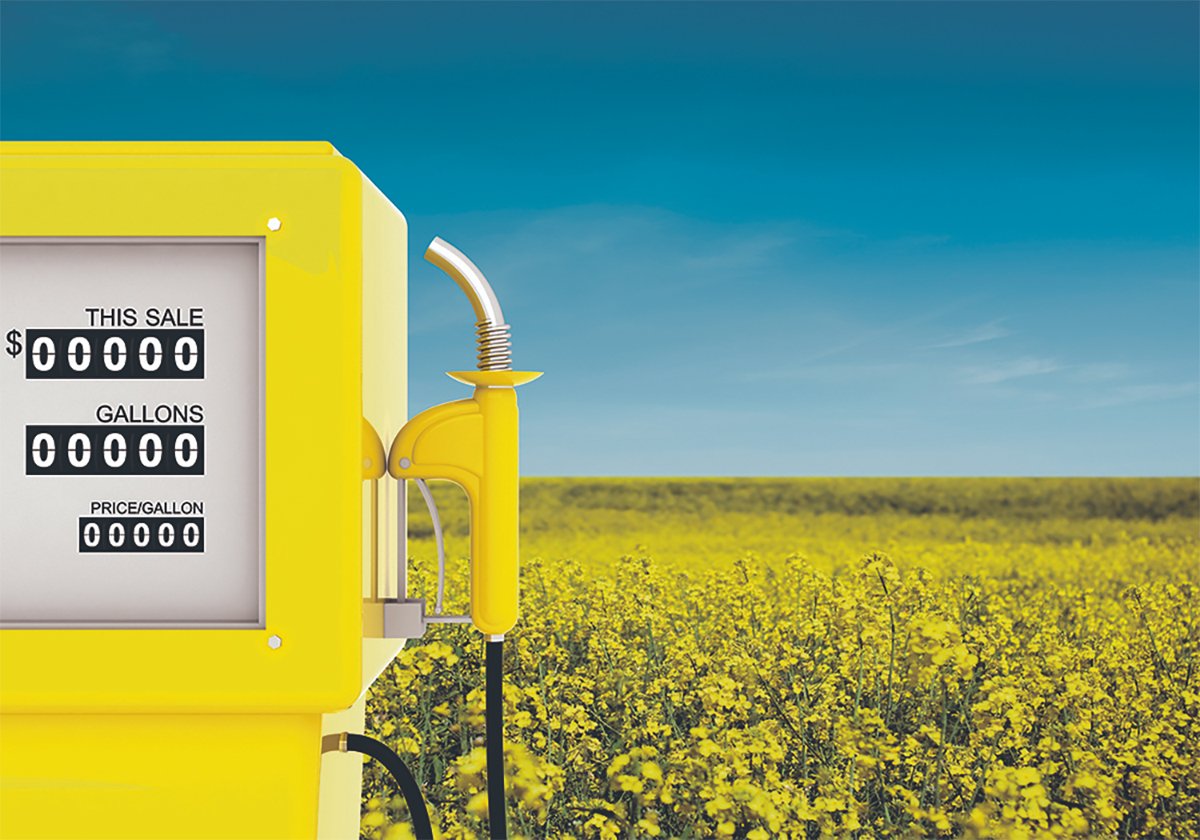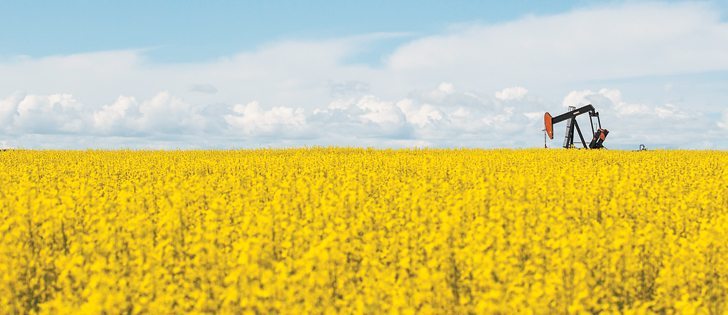Greener Diesel rule | Crushers may look west for canola but the cost will be weighed against imports of other forms of biodiesel such as tallow
Ontario’s renewable diesel mandate should create a new market for Canadian oilseeds, but the size of that market is in question.
The province’s “greener diesel” rules went into effect April 1.
Two percent biofuel will be blended into regular diesel during the first compliance period, which runs from April 1, 2014, to Dec. 31, 2015.
However, it is two percent with an asterisk, said Ian Thomson, president of the Western Canada Biodiesel Association.
The greenhouse gas reduction requirement for the first compliance period is an average minimum of 30 percent. Blenders receive a credit for using biofuel with a higher greenhouse gas reduction rating, which is pretty much every biodiesel or hydrogenation-derived renewable diesel on the market.
Read Also

Biofuel sector happy with federal budget
Advanced Biofuels Canada says new Biofuel Production Incentive is a lifeline until CFR amendments are in place.
For example, canola biodiesel reduces greenhouse gas emissions by 96 percent compared to regular diesel.
That means that if the average greenhouse gas reduction from the combination of biofuels used by blenders was 90 percent, then the blenders would be able to comply with the regulation by using .66 percent renewable diesel compared to the two percent stipulated for the first compliance period.
The rules call for three percent renewable diesel with an average minimum 50 percent greenhouse gas reduction in 2016 and four percent at an average minimum greenhouse gas reduction of 70 percent in 2017.
Thomson welcomed the mandate but wishes it was a straight volume mandate like those in Western Canada. British Columbia has a four percent mandate and the prairie provinces have two percent mandates.
“WCBA looks forward to working with Ontario over time to realize the full potential of renewable diesel fuels and ensure that Ontario’s agricultural producers, rural communities and urban residents benefit from production and use of sustainable, low carbon biofuels,” said Thomson.
He said it is difficult to say if the mandate will pull in canola-based biodiesel from Western Canada, where there is excess capacity, al-though he doubts it will. Four biodiesel plants in Western Canada have a combined capacity of 350 million litres.
“I don’t think the western biodiesel plants look to Central and Eastern Canada as key markets,” said Thomson.
It’s possible that Ontario crushers will buy canola from Western Canada to feed the province’s biodiesel plants, although that will depend on whether the price, including transportation costs, is competitive with imported soybeans from the U.S. Midwest.
There will also be competition from hydrogenation-derived renewable diesel shipped from Singapore and Rotterdam, as well as other forms of biodiesel, such as tallow biodiesel.
Dennis Rogoza, an adviser on sustainability for the Canola Council of Canada, thinks the mandate will create a significant market for oilseed-based biodiesel despite the greenhouse gas credits because of the large number of trucks that operate in Ontario.
“How much of that will be canola (biodiesel) is not clear yet, just because of the market dynamics,” he said.
Rogoza said Ontario’s biodiesel market is five times the size of Western Canada’s.
Another encouraging development for North American biodiesel producers is that the U.S. Senate finance committee passed a package of tax provisions last week, in-cluding an extension of the $1 per gallon biodiesel tax incentive, which expired Dec. 31.
“If Congress approves the legislation, the incentive would be reinstated retroactive to Jan. 1, 2014, and would last through Dec. 31, 2015,” Thomson said. “It would continue to apply to Canadian plants, so a Canadian producer can ship fuel to the States and receive a credit if it is blended in the States.”
He said the tax credit would be generally supportive for biodiesel production in North America.
















